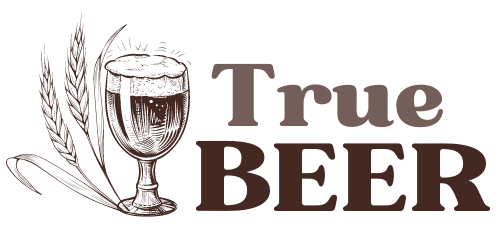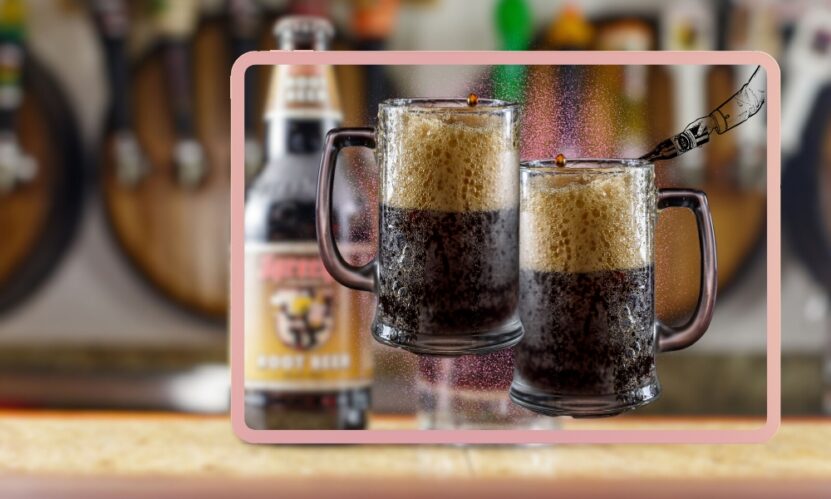Being a brewery chemist for more than two decades, I’ve been asked a plethora of questions related to brewing, be it about the tangy apple cider or the classic pilsner beer. Among these questions, one that tends to stand out due to its frequency is, “Does root beer have caffeine?” Let’s dissect this question in-depth, breaking down the elements that make up this kind of beer, its history, and the effects of caffeine on the human body.
A Brief Overview

Beer is a popular soft drink in North America, has a unique history and characteristics that set it apart from other beverages.
History
Root beer was initially brewed by indigenous people in North America, using a mix of roots, herbs, and bark. The key ingredient, sassafras root, gave it its distinct flavor. In the 19th century, Charles Hires commercialized a version that became the root beer we know today. The original variation was non-alcoholic, although there are now alcoholic versions available.
Characteristic Ingredients
Traditionally, this beer contained sassafras root, birch bark, wintergreen, and several other herbs and spices. Due to safrole, a compound in sassafras, being recognized as a potential carcinogen by the FDA, modern root beer manufacturers use artificial sassafras flavoring.
The Role of Caffeine in Beverages

Understanding caffeine and its effect on beverages and consumers helps clarify its presence or absence in root beer.
What is Caffeine?
It is a natural stimulant found in various plants, seeds, and fruits. It stimulates the central nervous system and can help reduce fatigue and increase alertness. Most people consume it in their everyday beverages like coffee, tea, and certain soft drinks.
Caffeine in Soft Drinks
In the realm of soft drinks, caffeine is often added intentionally. Its slightly bitter taste complements the sugar and other flavors in these drinks. Moreover, its stimulant effect can make these beverages more appealing to those who desire a bit of a pick-me-up.
Does Root Beer Have Caffeine?
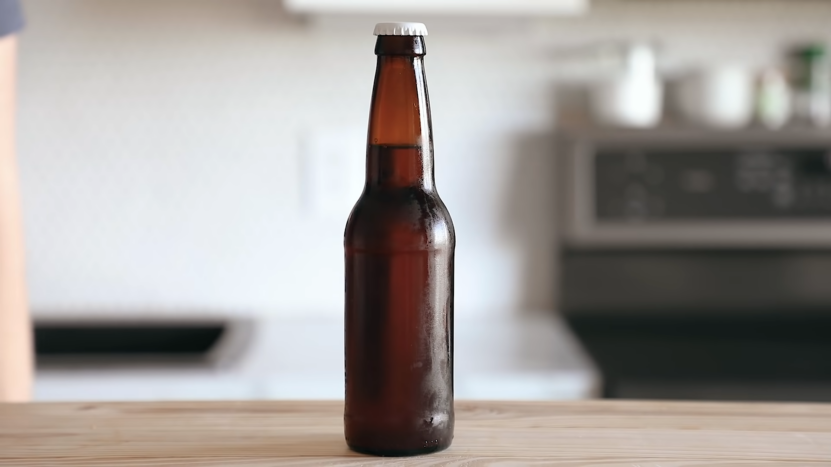
Now, let’s address the main question directly.
Traditional Variation and Caffeine
Traditional root beer, made with natural ingredients such as sassafras root and birch bark, does not contain caffeine. These ingredients do not naturally have it, and it was not added in the brewing process.
Modern Variation and Caffeine
In today’s market, most root beer brands continue the tradition of being caffeine-free. Brands like A&W, Barq’s, Mug, and IBC are typically devoid of it. However, it’s essential to check the label as there may be exceptions.
Why is Root Beer Typically Caffeine-Free?
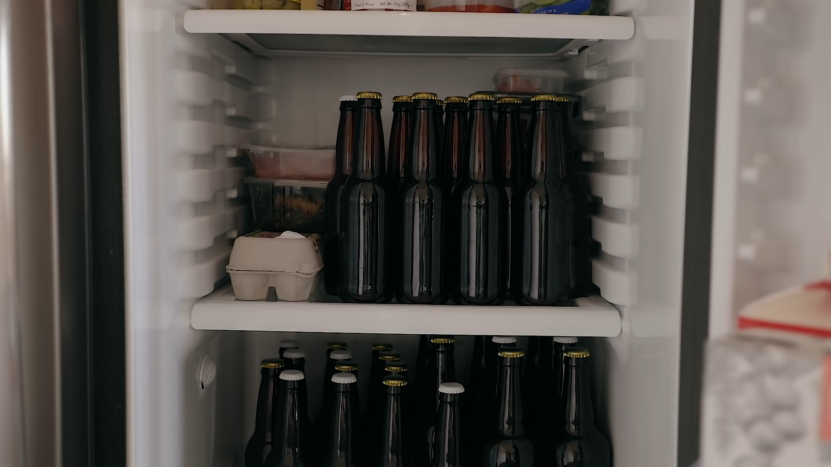
Understanding why most root beers are caffeine-free requires a look into the rationale behind soft drink formulation.
Caffeine as a Choice
When formulating a soft drink, adding caffeine is a deliberate choice made by manufacturers based on the desired taste profile and marketing strategy. This kind of beer has a unique flavor profile that doesn’t require the bitter undertones caffeine provides.
Consumer Expectations and Tradition
Traditionally, root beer has been a caffeine-free option for those who prefer it. Consumers also appreciate having a tasty, caffeine-free soft drink choice and root beer help meet that demand.
The Exception to the Rule: Barq’s Root Beer
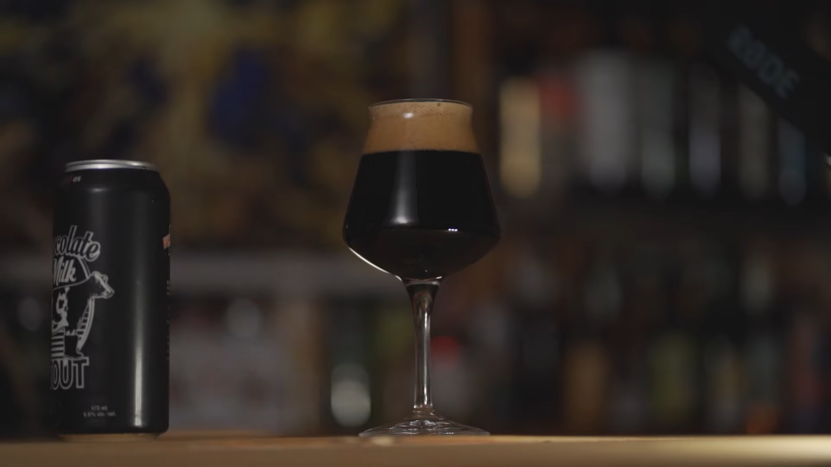
One popular brand, Barq’s, deviates from the norm by offering a caffeinated version of root beer.
Barq’s Caffeinated Root Beer
Barq’s Root Beer, owned by the Coca-Cola company, is unique because it contains caffeine. This exception to the rule provides a different option for those who enjoy root beer but want the added effect of caffeine.
Why Does Barq’s Add It?
Barq’s addition of caffeine distinguishes their brand in the root beer market and aligns with their tagline, “Barq’s has Bite!” This implies a stronger, more robust flavor that stands out from traditional root beers.
Effect of Caffeine on the Body
Finally, let’s discuss caffeine’s impact on the body to understand why some consumers prefer to avoid it.
Short-Term Effects
- Increases alertness and reduces fatigue
- It may boost mood and brain function
- Can improve metabolism and fat burning
- Enhances physical performance by increasing adrenaline
Long-Term Effects of Caffeine
- Chronic high intake may lead to sleep disorders, digestive problems, and increased heart rate
- Potential for addiction, with withdrawal symptoms like headaches, tiredness, and irritability
The Role of Sugar
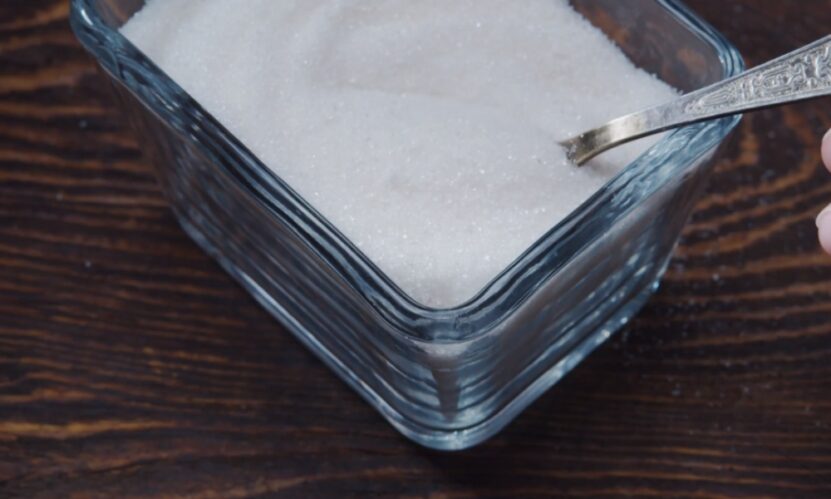
Another critical element to consider in the beer discussion is sugar.
How Much Sugar Is in It?
This beer is indeed a sweet drink, with most brands containing high amounts of sugar. For example, a 12 oz serving of A&W variation has 45 grams of sugar, which is equivalent to around 11 teaspoons!
Sugar-Free Options
For those who are sugar-conscious, many brands offer diet or sugar-free versions of root beer. These alternatives use artificial sweeteners or sugar alcohols to recreate the traditional sweetness of those beers without the added calories.
Flavor
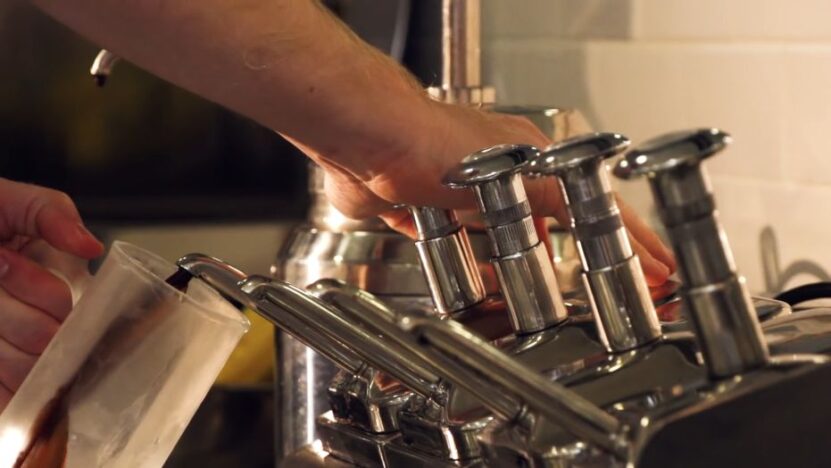
The flavor of those beers is distinct and complex, a significant reason for its enduring popularity.
The Complexity of Flavor
The root beer flavor is a combination of vanilla, cherry tree bark, wintergreen, molasses, anise, and licorice root. Some recipes also include honey and maple syrup. This blend creates a unique, aromatic flavor, unlike any other soft drink.
Variations in Flavor Among Brands
Different brands of those beers can have subtle variations in flavor, depending on their specific recipe. Some may be more vanilla-forward, while others might have a stronger wintergreen or licorice note.
Homemade Variation: Control What Goes In
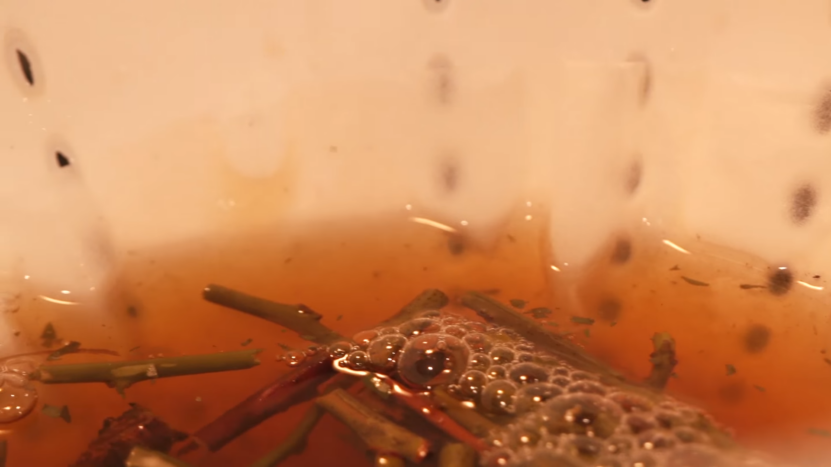
Making those beeers at home is a fun project that allows you to control what goes into your beverage.
The Basics of Brewing
To brew your root beer, you’ll need water, extract (available online or in-home brewing stores), and a sweetener. You’ll also need yeast if you want to carbonate it naturally.
Caffeine in Homemade Root Beer
When brewing at home, whether or not caffeine is included is entirely up to you! You could brew a traditional batch or experiment with adding some caffeine for an extra kick.
Final Words
It’s clear that the decision to include caffeine in a beverage has significant implications. With this beer, the general choice is to keep the classic, caffeine-free recipe, providing a delicious option for those who seek to limit their caffeine intake. As with all foods and drinks, remember to enjoy your drink in moderation as part of a balanced diet.
